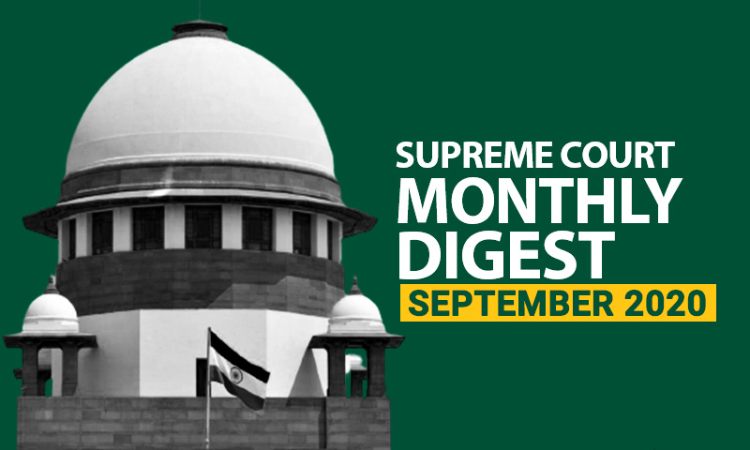- Home
- /
- Top Stories
- /
- Supreme Court Monthly Digest:...
Supreme Court Monthly Digest: September 2020
Akshita Saxena
30 Oct 2020 10:05 AM IST
Important Judgments/ Orders: 1. [Anti-Dumping Duty] Judicial Review Should Not Be Exercised Virtually As A Continuous Oversight Of Designated Authority Functions: SC Order dated September 1, 2020 Judicial review should not be exercised virtually as a continuous oversight of the DA's functions, observed the bench comprising Justices Arun Mishra, Vineet Saran and S. Ravindra...
Next Story



